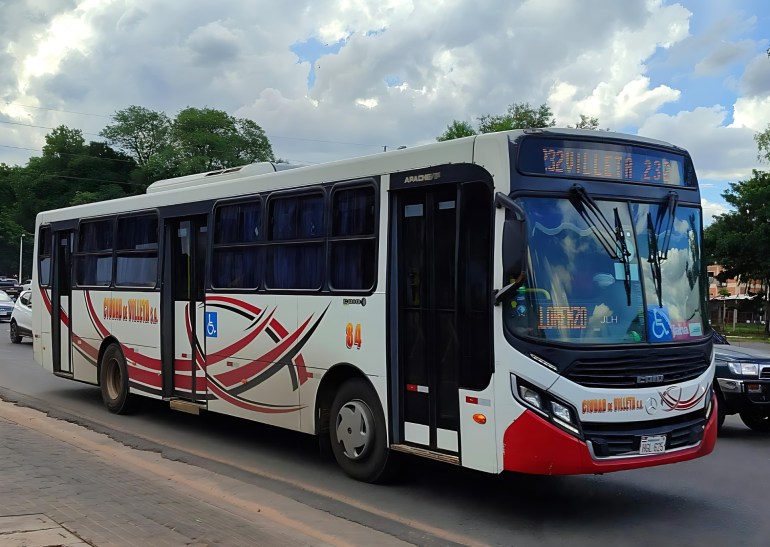In Asunción, the car is king. In and around Paraguay’s capital and largest city, trains are long gone, and only buses remain as public transport. While there are projects with the intention to bring back trains from the ashes, this will certainly not happen overnight. In the meantime, if you wish to travel around the city and prefer something other than Bolt or Uber, there are options. Let us take a closer look at Asunción’s bus system.
How does the system work?
In Asunción, the public bus system is primarily operated by private companies under the regulation and oversight of municipal and national transport authorities. These companies own and maintain their own fleets, and operate the routes assigned to them through licensing agreements. Around 75% of these bus companies are part of the Consortium of Public Bus Companies (Cetrapam).
The government, through entities such as the Municipality of Asunción and the National Agency for Transit and Road Safety (ANTSV), supervises the system to ensure compliance with regulations, safety standards, and service quality. The city may also be involved in planning and subsidising certain routes to improve urban mobility. Although many different companies own and operate the buses, information and payment systems are centralised.
How to find the right bus?
Your biggest ally when navigating the bus system is the Jaha app. The application, available on Google Play, means “Let’s go” or “We go” in Guaraní. It can also be accessed via the web.
The Jaha application shows the active bus lines on a map using Google Maps as its base. If you are unsure which bus to take, go to the menu on the left. Click on ¿Cómo llego?, which translates as “How do I get there?” Enter your departure and destination points, and it will suggest the appropriate bus routes.
How the payment system works
How to pay for your trip? First, you need a Más card. It costs Gs. 25,000 to obtain, approximately US$3.00. To purchase or top up your Más card, visit any Pago Express or Aquí Pago outlet in the city. You can also manage your account through the Más app.
There are two types of fares in Asunción’s bus system. The conventional (convencional) service is the most basic and economical, while the differential (diferencial) service offers greater comfort, often with air conditioning and reclining seats, and therefore comes at a slightly higher cost. Whether a particular line has air conditioning depends on the individual operator.
- Conventional fare: Gs. 2,300.
- Differential fare: Gs. 3,400.
Both options are under US$1.00. Some buses that travel around the Asunción Metropolitan Area may cost slightly more, as prices increase when crossing into neighbouring cities.
Buho (meaning ‘Owl’): The night bus
From 10 PM to 4 AM, Búho, meaning “Owl”, is the night-time bus service launched by the government. A ticket costs Gs. 3,400, and aims to provide a secure alternative for those working night shifts or returning home from a night out. Routes and availability can be checked through the Jaha app in real time.
Whether you are commuting to work or exploring the city, Asunción’s bus system offers a low-cost, accessible way to get around, especially when you know how to use it. In the past few years, Paraguay has also introduced electric buses, including those donated by Taiwan in the last few months, adding a more sustainable option to the fleet and marking a step towards modernising public transport.
Are you ready to discover more areas of Asunción?


